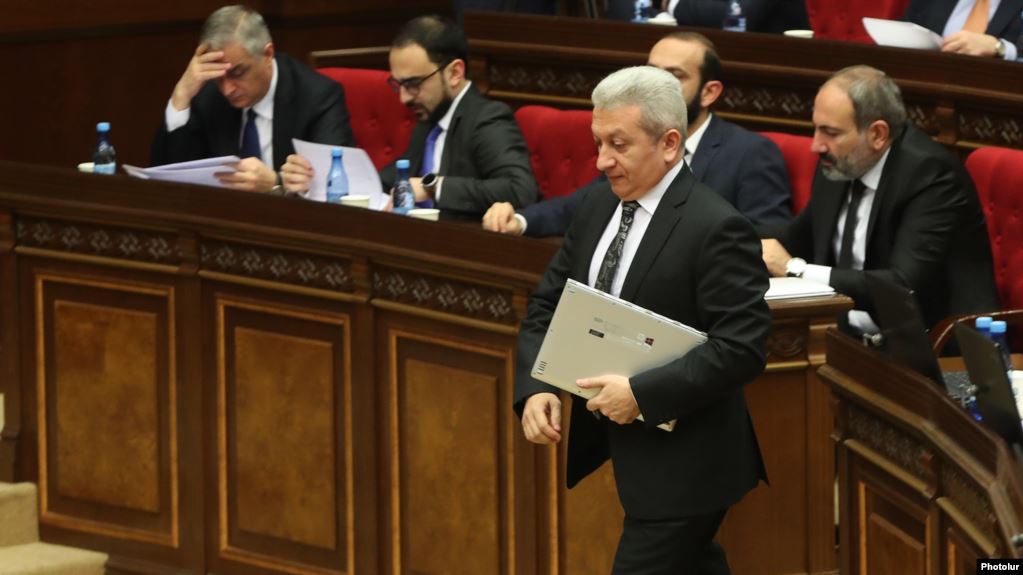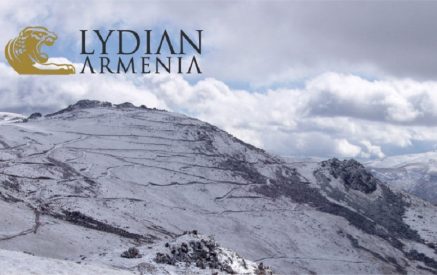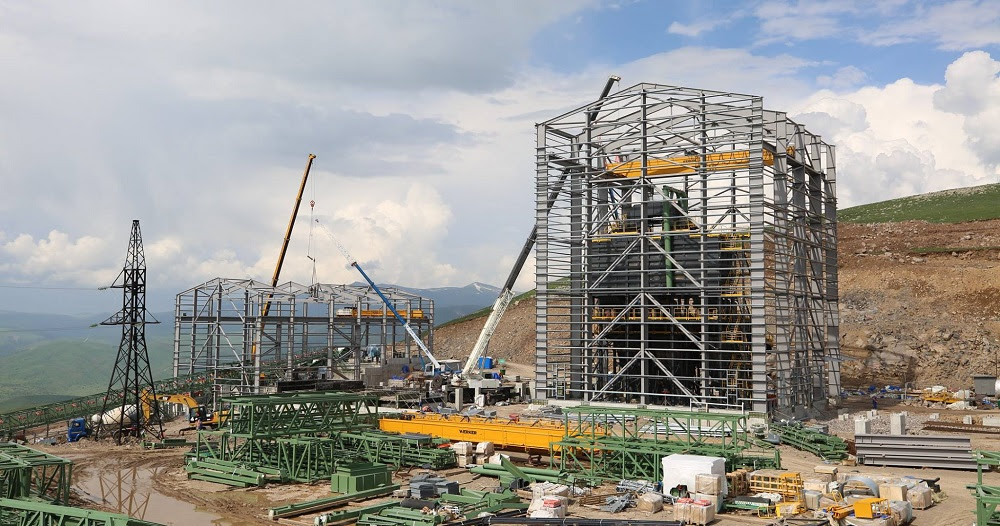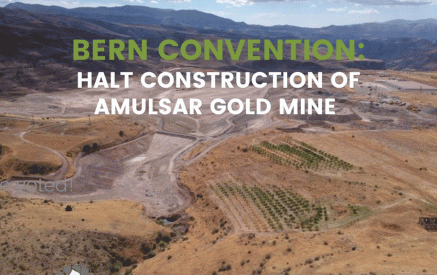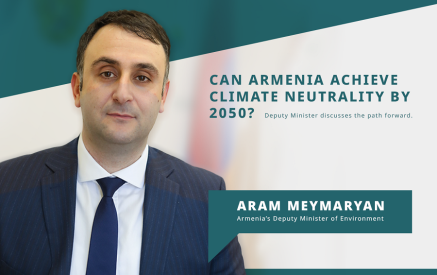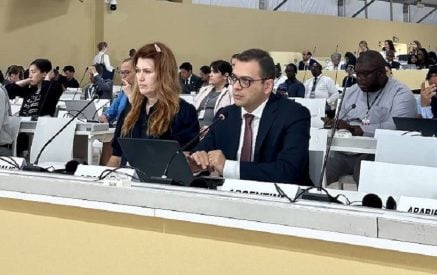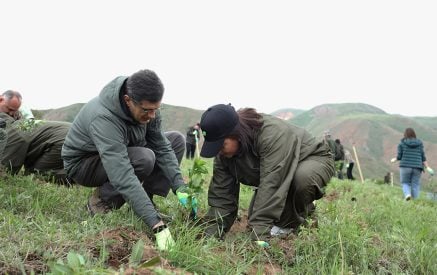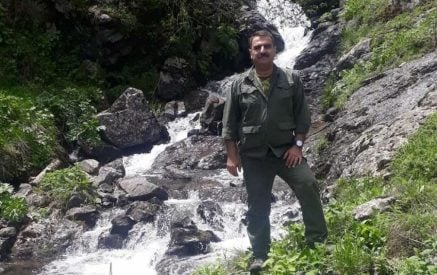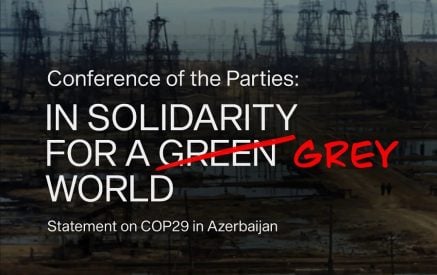Radio Azatutyun. Expert opinion must be decisive for the future of a large-scale gold mining project in Armenia that was disrupted by protesters last year, Finance Minister Atom Janjughazian said on Thursday.
“I believe that one must rely on specialists and the results of audits and be guided by that,” Janjughazian told reporters when asked whether he believes the Armenian government should allow the Anglo-American company Lydian International to develop the Amulsar gold deposit.
“A one-sided evaluation of any issue carries risks. No issue can be examined in a one-sided manner because there can always be a disadvantage alongside an advantage,” he said without elaborating.
The minister did not explicitly mention a recent environmental audit of the Amulsar project which was commissioned by the Armenian government and conducted by a Lebanese consulting firm, ELARD. In its final report publicized last week, ELARD essentially concluded that the project will not pose serious environmental risks if handled properly. In particular, it said that gold mining and smelting operations are very unlikely to contaminate mineral water sources in the nearby spa resort of Jermuk or rivers and canals feeding Armenia’s ecologically vital Lake Sevan.
Read also
Citing the findings of the ELARD audit, Prime Minister Nikol Pashinian indicated on Monday his government’s intention to enable Lydian to complete the construction of the Amulsar mine and produce gold there.
The construction was halted in June 2018 when several dozen protesters began blocking all roads leading to Amulsar, saying that mining operations there would inflict serious damage on the environment. Lydian, which claims to have already invested more than $350 million in the project, dismisses these concerns, saying that it will use modern and safe technology.
Janjughazian commented cautiously on the economic impact of Lydian’s renewed operations. “Both the functioning and non-functioning of any economic entity cannot fail to have an impact,” he said. “In case of its functioning, any positive movement generates positive expectations and thereby increases the [economic] potential. Conversely, there are negative expectations in the event of non-functioning.”
“So not only the direct but also indirect impact is important here,” added Janjughazian.
Deputy Economy Minister Avag Avanesian said on Tuesday that mining at Amulsar would speed up economic growth in Armenia, boost the country’s tax revenue and result in thousands of new jobs.
Other officials, notably Deputy Prime Minister Tigran Avinian, have warned that the Armenian government will be taken to an international court of arbitration and risk huge financial penalties if it pulls the plug on the project without strong legal grounds.
Nevertheless, environment protection activists and some opposition politicians remain strongly opposed to the U.S.-backed project. Some parliament deputies representing Pashinian’s My Step alliance have also spoken out against it.
But other pro-government lawmakers support the government’s apparent Amulsar-related plans. One of them, Babken Tunian, the chairman of the Armenian parliament committee on economic issues, on Thursday dismissed calls for a referendum on Amulsar made by senior members of the opposition Prosperous Armenia and Dashnaktsutyun parties.
“Sometimes voters can be mistaken over a concrete issue because of not having sufficient knowledge of or information about it,” Tunian wrote on his Facebook page.
Also backing Lydian’s renewed activities was Hanrapetutyun, a pro-Western party that was allied to Pashinian until last year. “It’s not every day that $400 million is invested in the Armenian economy, and failure to take advantage of that would definitely have severe consequences,” said the Hanrapetutyun leader, Aram Sarkisian.
Meanwhile, the mayor of Jermuk and nearby villages making up a single administrative unit spoke of a “very difficult situation” existing in the community. “Jermuk has never been in such a situation before,” Vartan Hovannisian told RFE/RL’s Armenian. He said he wants to see more government guarantees that gold mining will not harm Jermuk’s tourism industry.
Hovannisian said he maintains regular contacts with both the protesters blocking the Amulsar roads and Lydian executives. “I’m between the devil and the deep sea,” he complained. “The issue has started having very bad manifestations.
“These [protesters] have vowed not to open the roads. But the prime minister has said that they can’t fail to open them. This is creating a problem.”
The mayor also said that Pashinian is planning to visit Jermuk and speak to local residents concerned about the Amulsar project in the coming days or weeks.
Photo – Radio Azatutyun




















































